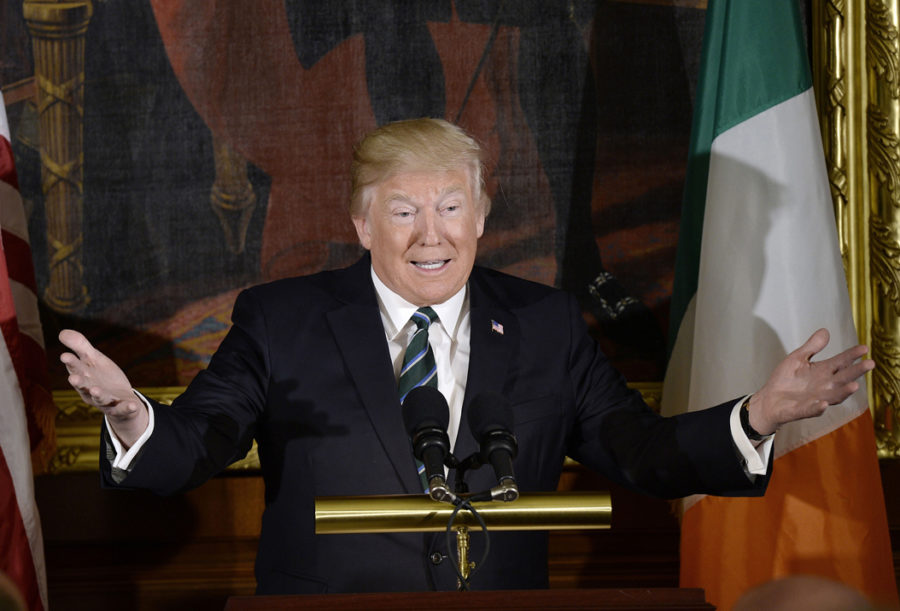In another startling blow to education under President Donald Trump, the administration rescinded a previous Obama-era regulation last week that prohibited student debt collection agencies from charging more than 16 percent interest on defaulted loans.
The administration’s new stance came in the form of a “Dear Colleague” letter — a short memo circulated to administration and departments explaining changes in procedures or operations — and came only days after a Consumer Federation of America report showed an increase in the number of students defaulting on their loans. In the letter, the administration said Obama’s decision was not based on enough input from the public.
Obama implemented the regulation in 2015 after a circuit court of appeals asked for guidance in a case that pitted United Student Aid Funds, a loan guarantor under the Family Federal Education Loan Program, against Bryana Bible, a borrower who sued the company for charger her more than $4,500 in collection fees after she defaulted on her loan in 2012.
But we’re skeptical that more public input is the real motivation behind rolling the old rule back. By repealing the regulations before first trying to gain public comment, the current administration is forcing students who currently have outstanding debt to pay higher interest rates until a new decision is made. If Trump’s administration is serious about its commitment to collecting advice from the public, it should elicit responses now and hold off on rescinding the cap on interest rates until we know what the people really think.
The number of people affected by the repeal isn’t marginal. A whopping 7 million people with $162 billion in outstanding loans from the FFEL Program will have to start paying higher interest rates as soon as collection agencies raise the rates, which they’re now free to do because of the letter’s repeal. In a time when students and graduates are increasingly defaulting on their loans, the government is asking them to pay back even more.
But in some ways, the fact that the administration cited a lack of public input rather than an actual desire to raise interest rates is encouraging. The Republican party is not often kind to student loans and their interest rates, so if its stance is legitimate, it does offer more hope than other explanations it may have provided. It could have justified the choice with a desire to increase interest rates as a way to scare students out of taking more loans in order to avoid the higher penalties if they default. Trump didn’t take a frightening stance on student loan and debt when he definitely could have, but we have to hold him accountable for getting that public input, too.
President Trump and the Department of Education should garner public comment on the matter — though hopefully it isn’t through another leading GOP survey — but our willingness to give him the benefit of the doubt when it comes to education is practically nonexistent at this point.
If they plan to pack the room with lobbyists and those who have financial motives to charge higher interest rates, then the effort is for naught, and it will prove the public comment statement merely a tactic disguising a tough stance with a soft demeanor.
A jury duty like process where citizens are polled randomly is the most efficient way to glean public input on an issue, as opposed to an open comment areas where corporate interests would be free to dominate the discussion.
The move is yours now, Washington. If government officials are really concerned about the public’s opinions on student loan rates, consider our students’ financial futures before you make another rash decision to spite relics of the Obama administration.



